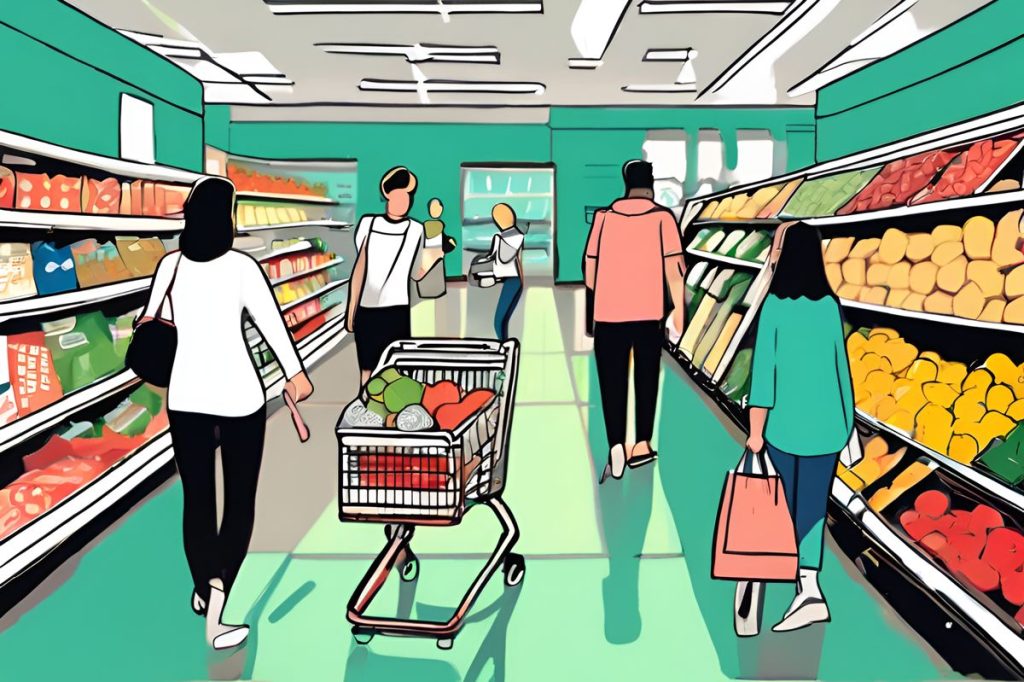Starting October 1st, the government will end the electricity subsidy and the zero per cent VAT on essential goods like bread and milk, leading to higher costs for households. This shift is expected to strain monthly budgets as utility bills rise and everyday groceries become more expensive, affecting families across the nation.
How will the upcoming changes in fiscal policies affect the cost of living?
Starting October 1st, the government will discontinue the electricity subsidy and the zero per cent VAT rate on essentials like bread and milk. This cessation of financial supports, previously cushioning against economic shocks, will likely lead to an increase in utility bills and grocery costs, impacting the monthly budget of consumers.
Changes to Subsidies and Taxes
Starting from the 1st of October, the landscape of consumer prices is set to change significantly. The government has announced that the electricity subsidy, which has been a relief to many amidst fluctuating energy prices, will no longer be in effect. In parallel, the zero per cent Value Added Tax (VAT) rate applied to a selection of 11 essential goods is also being discontinued. Implemented as a measure to mitigate the financial strain on households, the subsidy and tax relief have run their course from March 2023 to the anticipated end in October 2024, incurring a cost of €201 million to the public coffers, as stated by the finance ministry.
The rationale for reversing these measures stems from an economic forecast that predicts a stabilization of inflation at around two per cent. Energy costs, which saw a significant hike, prompting the subsidies, are expected to decline. This anticipation aligns with the observed reduction in fuel prices. Government officials argue that such state interventions are temporary solutions and prolonged reliance could have detrimental effects on the economy.
Future Pricing for Everyday Essentials
With the cessation of the electricity subsidy on September 30, households will have to brace for the impact on their utility bills, as full electricity prices will resume. The adjustments don’t stop there—essentials that were previously VAT-exempt will now attract a five per cent tax. This list includes staples such as bread, milk, and eggs, as well as other items like baby food, women’s hygiene products, diapers, sugar, coffee, meat, and vegetables. Such changes are expected to affect the cost of living, with the immediate effect felt across the grocery bills of consumers.
It is important for consumers to understand the implications of these tax changes. While the increase from zero to five per cent might seem modest, it can have a cumulative effect on a monthly household budget, especially for larger families or those with lower income. Economists suggest that while the subsidy and tax relief were beneficial, they were always intended as temporary measures to cushion against external economic shocks.
The Economic Landscape
The decision to withdraw these financial supports comes in the wake of a complex economic situation shaped by global events. With energy prices on a rollercoaster in recent years, governments worldwide have been grappling with ways to support their citizens without causing long-term harm to the economic structure. In this context, the ending of the electricity subsidy and the adjustment of VAT rates on essential goods is a sign that the state is beginning to retract its emergency economic stabilizers.
Despite these changes, the government remains vigilant about the economic welfare of its citizens. Officials maintain that they will continue to monitor the economic indicators closely and adjust policies as necessary to ensure the country’s financial health and support the standard of living for its residents.
Impact on Consumers
The forthcoming fiscal changes mark a significant transition period for the population. Consumers, who have become accustomed to the reduced costs, must now prepare for a gradual return to standard pricing. Financial advisors recommend households to start reviewing their budgets, considering energy-saving measures, and potentially looking for cost-effective substitutes for their usual purchases.
As families across the nation adjust to the revised pricing, the broader economic implications will unfold. The end of the subsidies and the VAT adjustments are poised to ripple through the market, potentially influencing consumer behavior and spending patterns. It remains to be seen how these changes will alter the economic landscape in the long term, but for now, citizens are advised to plan ahead and stay informed on how these adjustments will affect their daily lives.
FAQ on Adjustments in Fiscal Policies Impacting Cost of Living
How will the upcoming changes in fiscal policies affect the cost of living?
Starting October 1st, the government will discontinue the electricity subsidy and the zero per cent VAT rate on essential goods like bread and milk. This cessation of financial supports, previously cushioning against economic shocks, will likely lead to an increase in utility bills and grocery costs, impacting the monthly budget of consumers.
What essential goods will be affected by the changes in VAT rates?
With the end of the zero per cent VAT, essential goods that will now be subject to a five per cent tax include staples such as bread, milk, eggs, baby food, women’s hygiene products, diapers, sugar, coffee, meat, and vegetables. This change is expected to raise overall grocery bills for households across the country.
What should consumers do to prepare for these changes?
Financial advisors recommend that households start reviewing their budgets to accommodate the anticipated rise in costs. Additionally, families are encouraged to implement energy-saving measures and consider cost-effective alternatives for their usual purchases to mitigate the impact on their finances.
Why is the government ending the electricity subsidy and the zero per cent VAT?
The government has decided to end these financial supports as part of a broader strategy to stabilize the economy. Officials predict a stabilization of inflation at around two per cent and anticipate a decline in energy costs, which were the primary reasons for the subsidies. They argue that prolonged reliance on such measures could harm the economy, as they were intended to be temporary solutions to external economic shocks.

